Has Turkey turned on Erdoğan?
Soaring inflation and dissatisfied conservative voters bring historic defeat for Erdoğan's ruling party in local elections
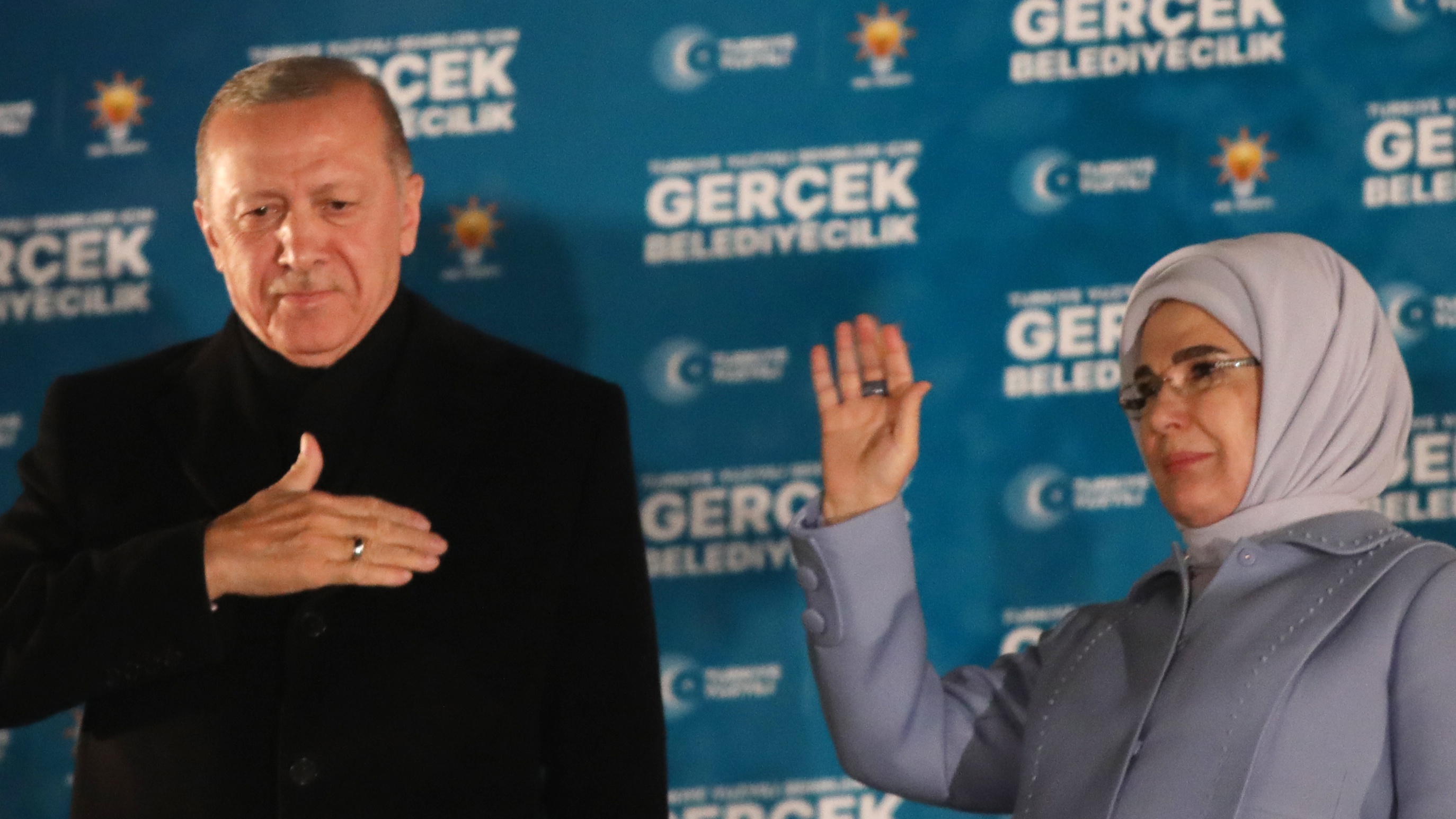
President Recep Tayyip Erdoğan and his AK Party (AKP) suffered their worst defeat in more than two decades in local elections on Sunday.
The opposition Republican People's Party (CHP) retained mayoral seats in the key cities of Istanbul and Turkey's capital Ankara, and gained 15 new seats across the country. Many were in cities seen as traditional "strongholds" of Erdoğan and the AKP.
For the CHP, Sunday's vote was a "make-or-break moment for a movement still reeling" from Erdoğan's momentous victory in presidential elections last May, said Politico.
Subscribe to The Week
Escape your echo chamber. Get the facts behind the news, plus analysis from multiple perspectives.

Sign up for The Week's Free Newsletters
From our morning news briefing to a weekly Good News Newsletter, get the best of The Week delivered directly to your inbox.
From our morning news briefing to a weekly Good News Newsletter, get the best of The Week delivered directly to your inbox.
The greatest triumph for the CHP was in Istanbul, where the party's Ekrem Imamoğlu clinched a second term as mayor. Imamoğlu is now widely viewed as Erdoğan's main presidential challenger, after "winning the city which catapulted the current president to national prominence when he won the mayorship 30 years ago".
What did the commentators say?
"Less than a year ago, Turkey's main opposition parties were in a slough of despond" after Erdoğan, the country's authoritarian leader, "comfortably" won a third term, said The Guardian. "Years of clientelism, culture wars and overwhelming media dominance appeared to have rendered Erdoğan's strongman politics all but unassailable at national level."
It is hardly surprising then that the CHP's "spectacular and unanticipated turnaround" in Sunday's local elections "prompted wild celebrations into the early hours".
The "drubbing" for the AKP came as Turkey's long-running economic crisis "finally became too much for many voters to bear", said the Financial Times. Erdoğan, whose "unorthodox" economic policies have been blamed for triggering rapidly rising inflation, has historically resorted to populist handouts ahead of elections. This included a month of free natural gas for voters before last spring's presidential election, which he won despite an attempt by a six-party opposition alliance to defeat him.
Since then, however, Erdoğan has resisted offering another raft of populist measures and instead stuck to his government's economic policies "in an attempt to finally extinguish the inflation crisis with a return to a more orthodox economic approach". Known as a "shrewd politician and unforgiving campaigner", Erdoğan also made "a series of missteps that amplified the scale of AKP's loss". In particular, he underestimated the impact of the smaller parties that hold sway over conservatively religious voters.
"In the streets of Istanbul, as well as on social media, people already talk about 'the beginning of the end' for Erdoğan," said Daniel Thorpe in The Spectator. The election results have proven that the president is "not invincible", but whether the end of his 22-year rule is in sight "is too early to say".
What next?
Whether the CHP's success will last until the next presidential election "remains to be seen", said The Telegraph. "Before heading to polling stations, some Turks spoke of voting for what they considered the lesser of two evils; others, disillusioned by the country's deeply divided political landscape, didn't bother to vote at all." Turnout, at 76%, was lower than the 87% for last year's presidential elections.
While Sunday's results have "revitalised the opposition", said the FT, Erdoğan "remains one of Turkey's most popular politicians," and enjoys largely unchecked power. There is "ample" time for the AKP to regroup and for Erdoğan's controversial economic programme to "bear fruit" ahead of the next presidential election, in 2028.
But Sunday's "stinging rebuff" to the ruling party "may dissuade Erdoğan from seeking further constitutional change to allow him to run for yet another term as president", said The Guardian. Turkey has undergone a "relentless erosion of democratic checks and balances on Erdoğan's watch". And while the governing coalition led by the AKP is not big enough to change the constitution again on its own, "a stellar result in Sunday's elections could have tilted political momentum its way".
Strengthening the president's stranglehold over Turkish politics would have been "a disaster for Turkish democracy". Instead, there is reason to hope that "Erdoğan's star may finally be on the wane".
A free daily email with the biggest news stories of the day – and the best features from TheWeek.com
Sorcha Bradley is a writer at The Week and a regular on “The Week Unwrapped” podcast. She worked at The Week magazine for a year and a half before taking up her current role with the digital team, where she mostly covers UK current affairs and politics. Before joining The Week, Sorcha worked at slow-news start-up Tortoise Media. She has also written for Sky News, The Sunday Times, the London Evening Standard and Grazia magazine, among other publications. She has a master’s in newspaper journalism from City, University of London, where she specialised in political journalism.
-
 Critics' choice: 2025 James Beard Award winners
Critics' choice: 2025 James Beard Award winnersFeature Featuring a casually elegant restaurant, recipes nearly lost to war, and more
-
 How will Trump's spending bill impact student loans?
How will Trump's spending bill impact student loans?the explainer Here's what the Republicans' domestic policy bill means for current and former students
-
 Can the US economy survive Trump's copper tariffs?
Can the US economy survive Trump's copper tariffs?Today's Big Question The price hike 'could upend' the costs of cars, houses and appliances
-
 Can Texas redistricting save the US House for the GOP?
Can Texas redistricting save the US House for the GOP?Today's Big Question Trump pushes a 'ruthless' new plan, but it could backfire
-
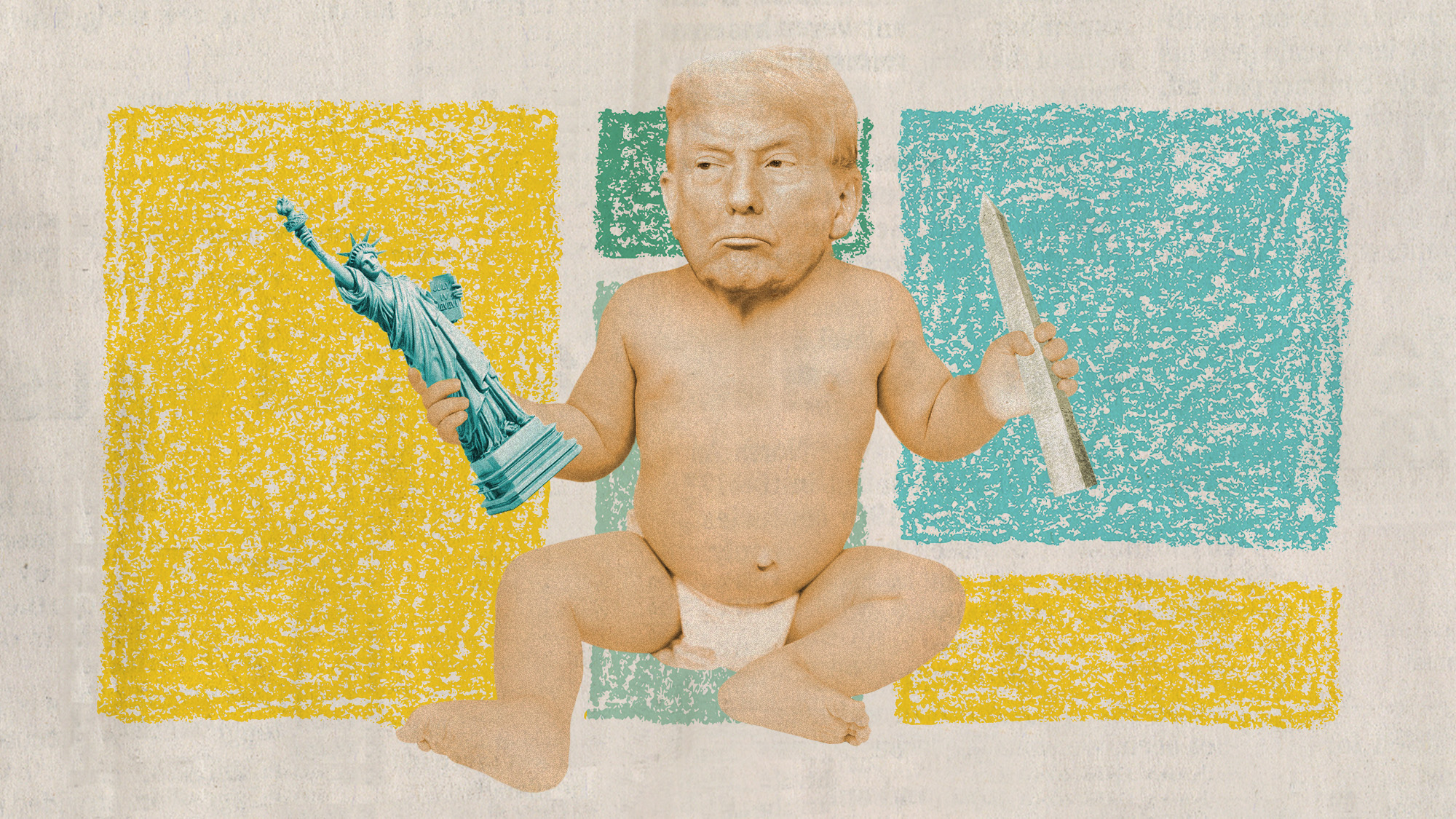 Could Trump really 'take over' American cities?
Could Trump really 'take over' American cities?Today's Big Question Trump has proposed a federal takeover of New York City and Washington, D.C.
-
 How will Trump's megabill affect you?
How will Trump's megabill affect you?Today's Big Question Republicans have passed the 'big, beautiful bill' through Congress
-
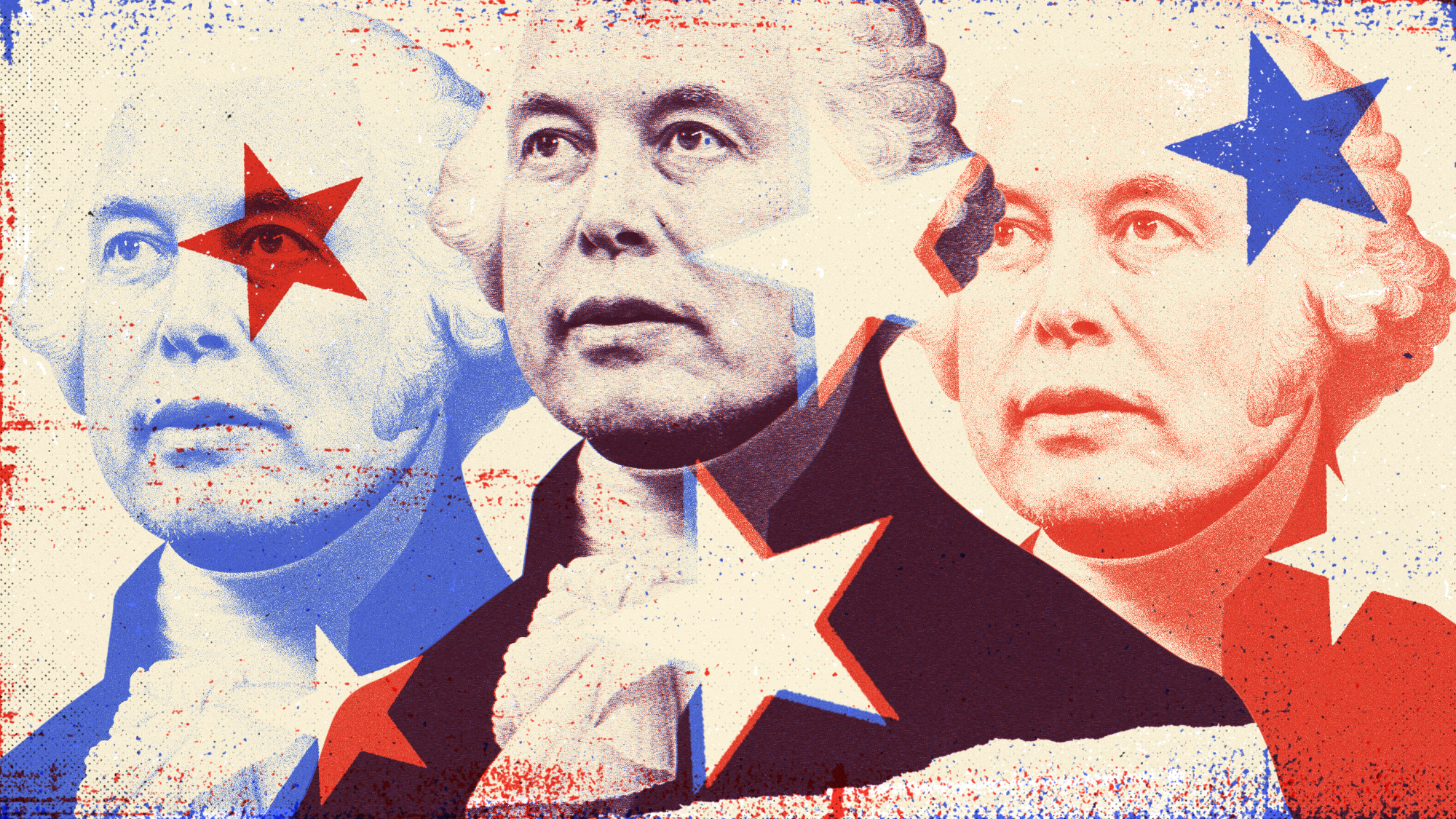 How successful would Elon Musk's third party be?
How successful would Elon Musk's third party be?Today's Big Question Musk has vowed to start a third party after falling out with Trump
-
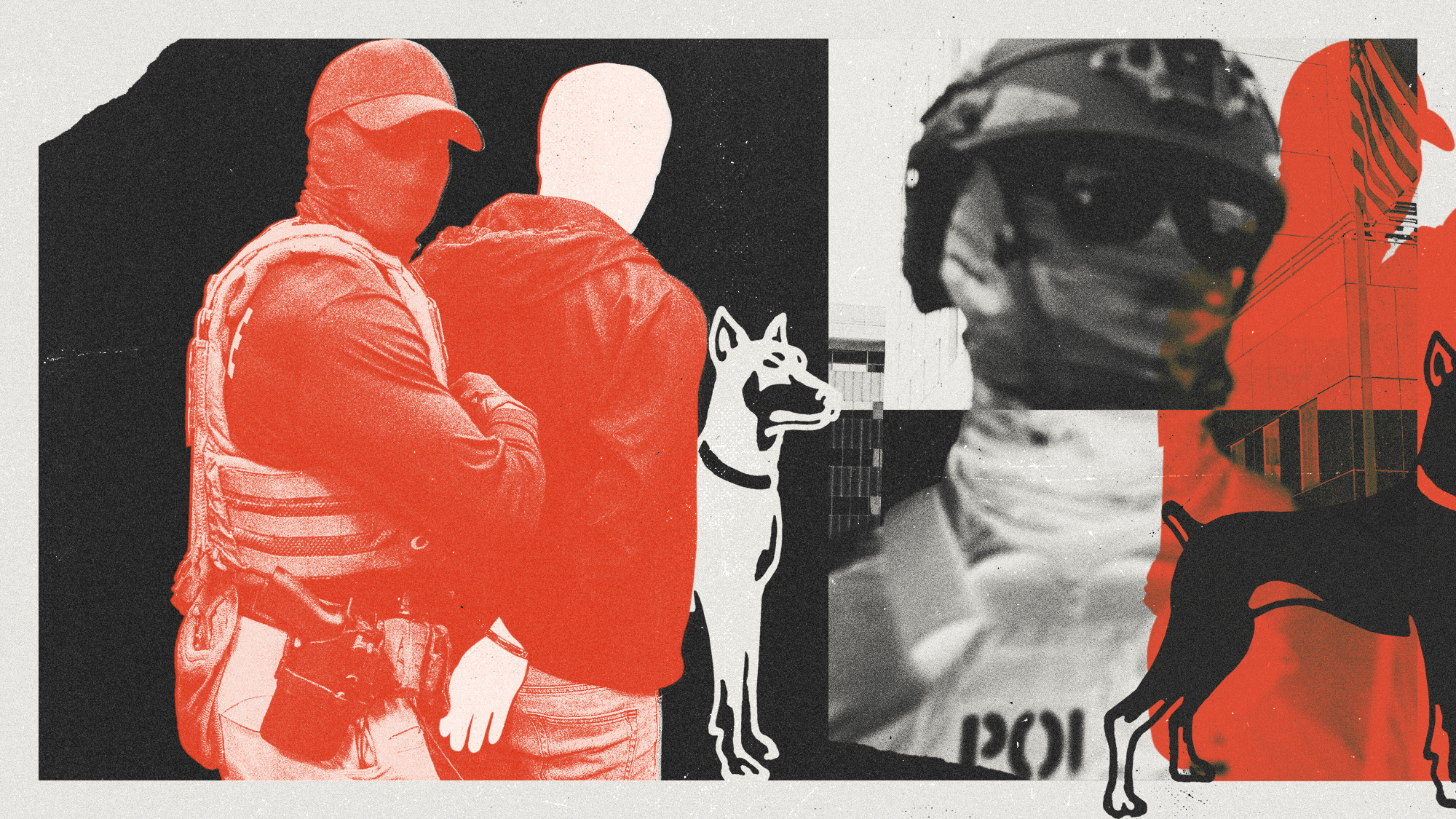 Are masked ICE agents America's new secret police?
Are masked ICE agents America's new secret police?Today's Big Question Critics say masks undermine trust in law enforcement
-
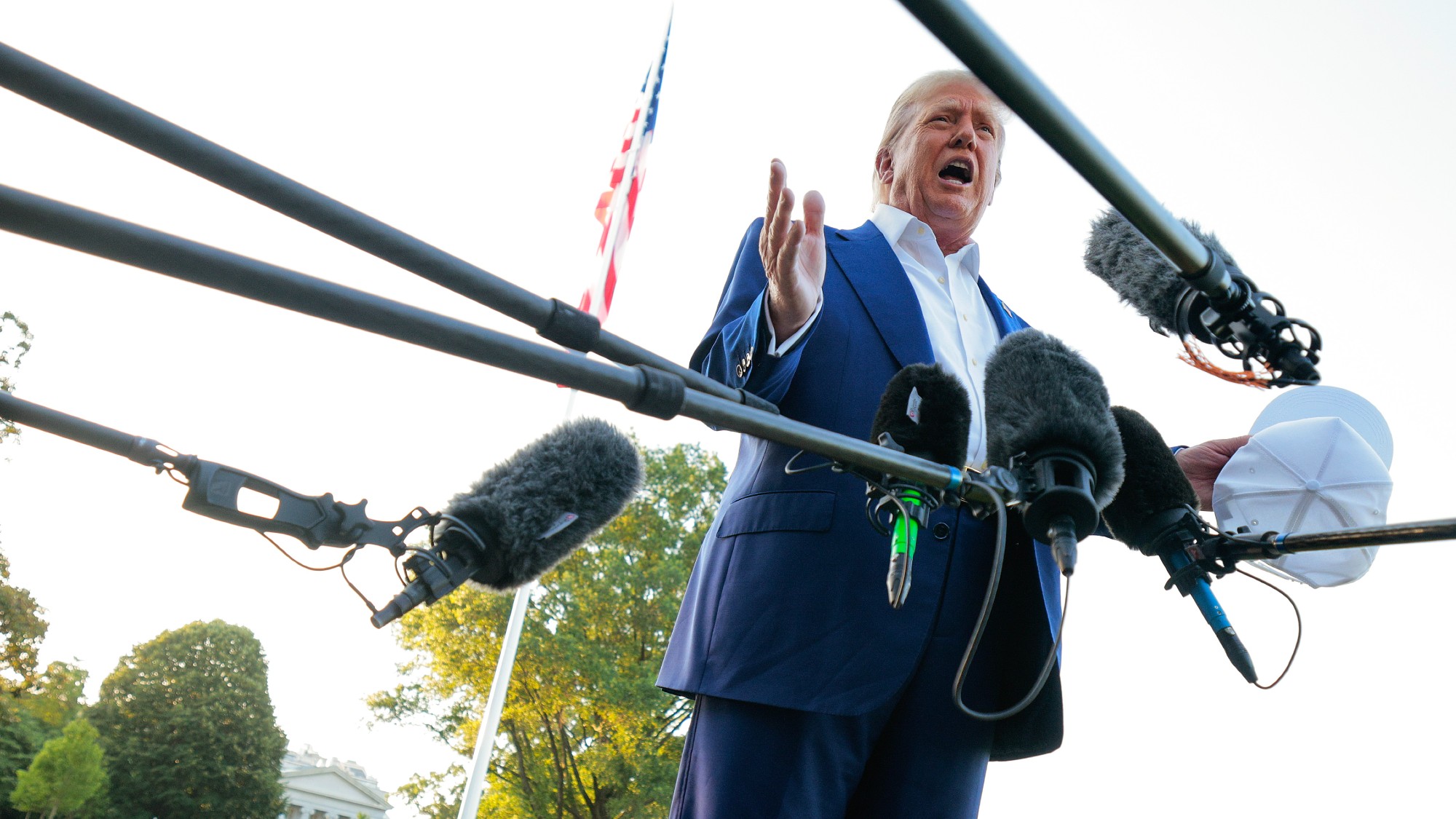 Trump's strikes on Iran: a 'spectacular success'?
Trump's strikes on Iran: a 'spectacular success'?In Depth Military humiliations 'expose the brittleness' of Tehran's ageing regime, but risk reinforcing its commitment to its nuclear program
-
 Will NATO countries meet their new spending goal?
Will NATO countries meet their new spending goal?today's big question The cost of keeping Trump happy
-
 Is Trump sidelining Congress' war powers?
Is Trump sidelining Congress' war powers?Today's Big Question The Iran attack renews a long-running debate